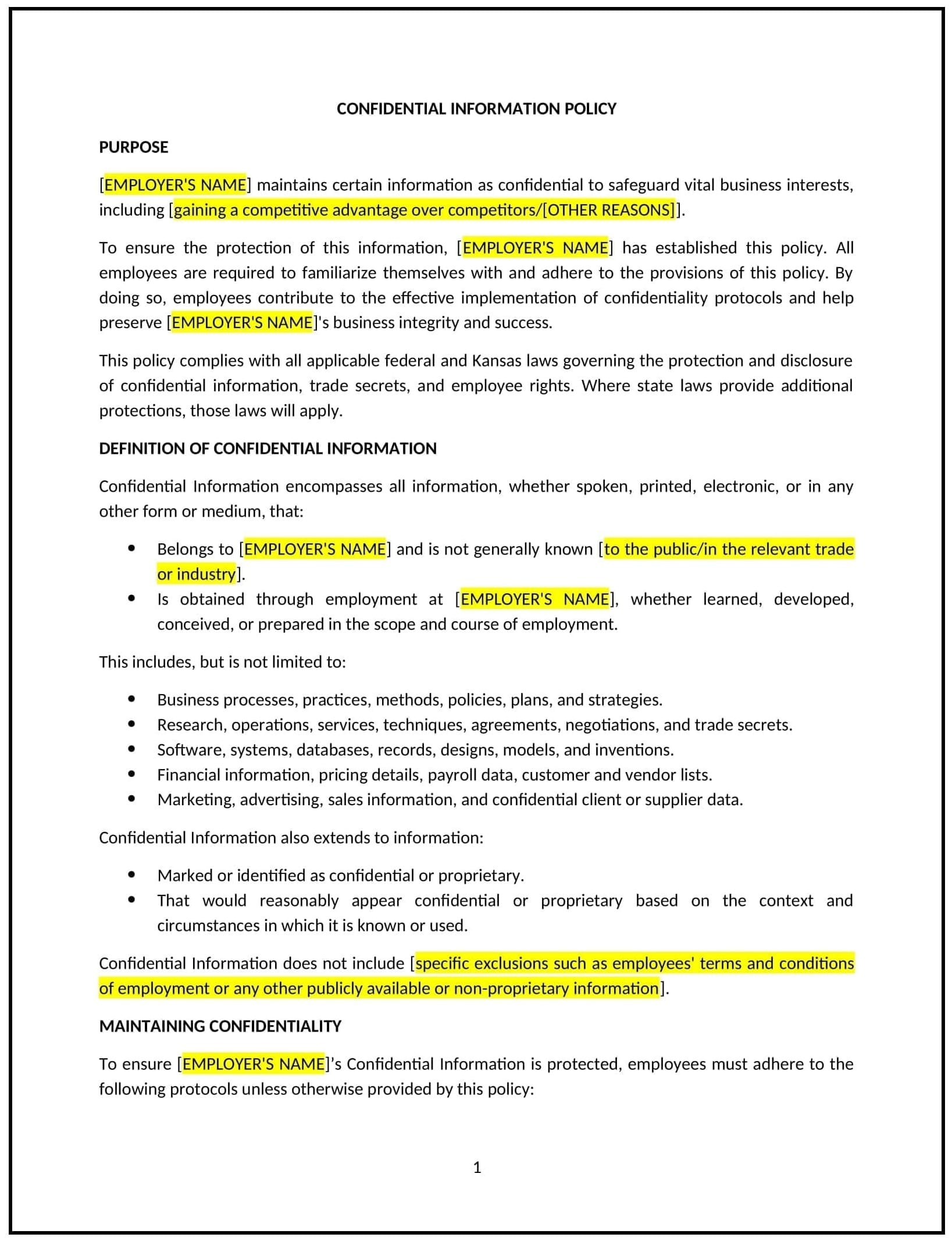Confidential information policy (Kansas): Free template
Got contracts to review? While you're here for policies, let Cobrief make contract review effortless—start your free review now.

Customize this template for free
Confidential information policy (Kansas)
A confidential information policy helps Kansas businesses protect sensitive business data, trade secrets, and employee and client information. This policy outlines what constitutes confidential information, how it should be handled, and the responsibilities of employees in safeguarding proprietary data.
By implementing this policy, businesses can reduce the risk of data leaks, strengthen trust with clients and partners, and promote a culture of information security.
How to use this confidential information policy (Kansas)
- Define confidential information: Businesses should specify what types of information are considered confidential, such as financial records, customer data, business strategies, intellectual property, and employee records.
- Establish access controls: Businesses should define who can access confidential information, outlining role-based permissions and the necessity of limiting data exposure.
- Outline data protection measures: Businesses should require employees to use secure storage, encrypted communication, and password protection for confidential files.
- Prohibit unauthorized disclosure: Employees should be prohibited from sharing confidential information with unauthorized parties, both inside and outside the organization.
- Address handling of electronic and physical records: Businesses should establish procedures for storing, transmitting, and disposing of sensitive information securely.
- Require confidentiality agreements: Employees, contractors, and third-party vendors should sign confidentiality agreements before accessing proprietary business data.
- Review and update regularly: Businesses should periodically assess data security practices and adjust policies as needed to address emerging risks.
Benefits of using a confidential information policy (Kansas)
- Protects business assets: Safeguards proprietary data, trade secrets, and competitive advantages.
- Reduces data breach risks: Establishes security measures to prevent unauthorized access or leaks.
- Builds trust with clients and employees: Reinforces a commitment to protecting sensitive personal and business information.
- Clarifies employee responsibilities: Defines expectations for handling and safeguarding confidential data.
- Strengthens legal protection: Provides a structured approach to confidentiality that supports contract enforcement and dispute resolution.
- Encourages secure workplace practices: Promotes responsible data management and cybersecurity awareness among employees.
Tips for using this confidential information policy (Kansas)
- Communicate data security expectations: Businesses should ensure employees understand how to handle confidential information properly.
- Limit access to sensitive data: Businesses should implement role-based permissions to restrict confidential data to authorized personnel.
- Provide cybersecurity training: Employees should be educated on data protection best practices, including phishing prevention and secure password management.
- Monitor and address security risks: Businesses should conduct regular audits of confidential data handling to identify potential vulnerabilities.
- Establish clear reporting procedures: Employees should know how to report suspected data breaches or unauthorized disclosures.
- Regularly update confidentiality agreements: Businesses should review and refresh non-disclosure agreements with employees and vendors to reflect evolving business needs.